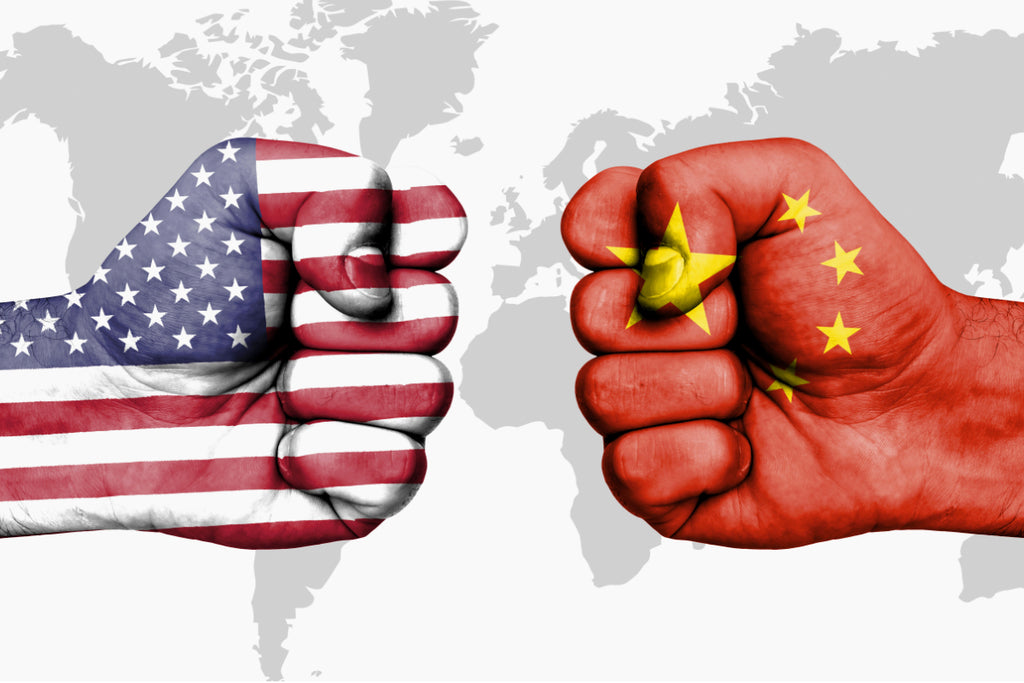Image from Food Business News
As almost everyone knows, late last year the U.S. imposed tariffs on China in the amount of 10% on Chinese goods in certain manufacturing sectors. In response, China imposed $60billion worth of taxes on U.S. goods. Staring January 1, 2019 the U.S. planned to raise said tariffs to 25%. China and the U.S.A entered a truce and agreed that March 1st would be the new deadline to come to an agreement on trade. When that did not happen, Trump agreed to postpone the decision again, however there is no new deadline at this time.
This certainly seems like, a lose-lose situation in our humble opinion. It is the consumers in China and the U.S.A. will end up having to pay higher prices as manufactures impacted by the tariffs. Chinese tariffs have already been said to cause a $7 billion reduction in American consumer’s income.
Tariffs initially impacted flat-screen televisions, medical devices, and aircraft parts manufacturing companies in the United States. The next round of tariffs planned include cotton, cotton yarn, cotton linters and pulp, cotton waste, cotton sewing threads and cotton woven fabric, amongst others, which particularly interests us as Made Lokal features a lot of Made in America clothing.
A staggering 41% of U.S.’s apparel consumption, 72% of America’s footwear sold in the U.S. are made in China, both numbers continuing to rise. The American Apparel and Footwear Association says that the tariffs on China could put at risk the $130 billion in their exports to China. To note is that China is also imposing a tariff on U.S. cotton. Demand for cotton in general has been on the rise in both the U.S. and China.
A risk that will further be problematic for the United States is that Chinese businesses will move their production to Southeast Asian countries in order to avoid the tariffs and thus protecting consumer prices.
To note is that while the U.S. Chamber of Commerce does not support these tariffs, however they are very much in support of negotiations with China in order for both countries to agree on a trade relationship that is more long term and is mutually beneficial. One reason is that at this point only 1% of companies considered moving manufacturing back to the U.S.A. so manufacturing in the U.S. is not expected to see a rise in production.
As of now, no date has been scheduled for the trade talks between Donald Trump and Chinese President Xi Jinping. In fact on March 13th, Trump declared that he was not in a rush to have those talks, which were planned to take place at Trump’s Mar-A-Lago property later in March. Until those talks actually happen, we will be eagerly awaiting the meetings between China and the U.S.A. regarding trade and tariffs and trade.
Sources: NY Times, Federal Reserve Bank of NY, U.S. Chamber of Commerce, American Chamber of Commerce in South China, Observer



Leave a comment